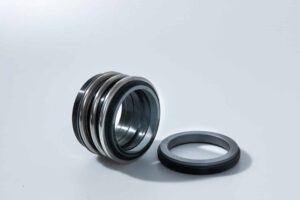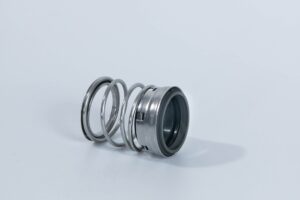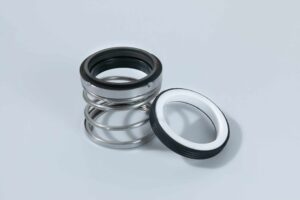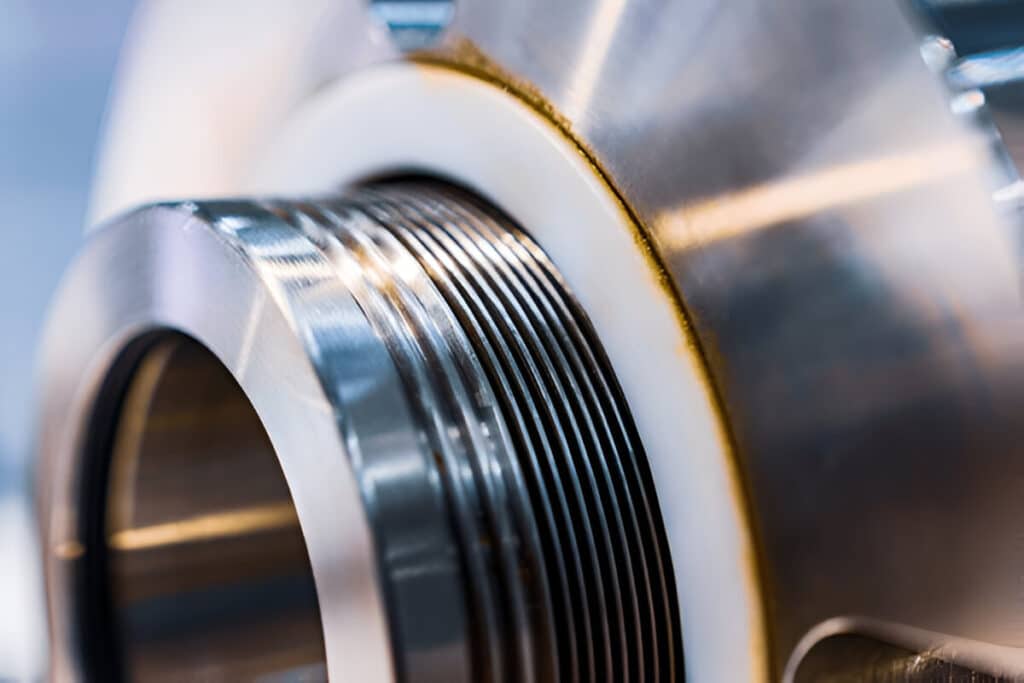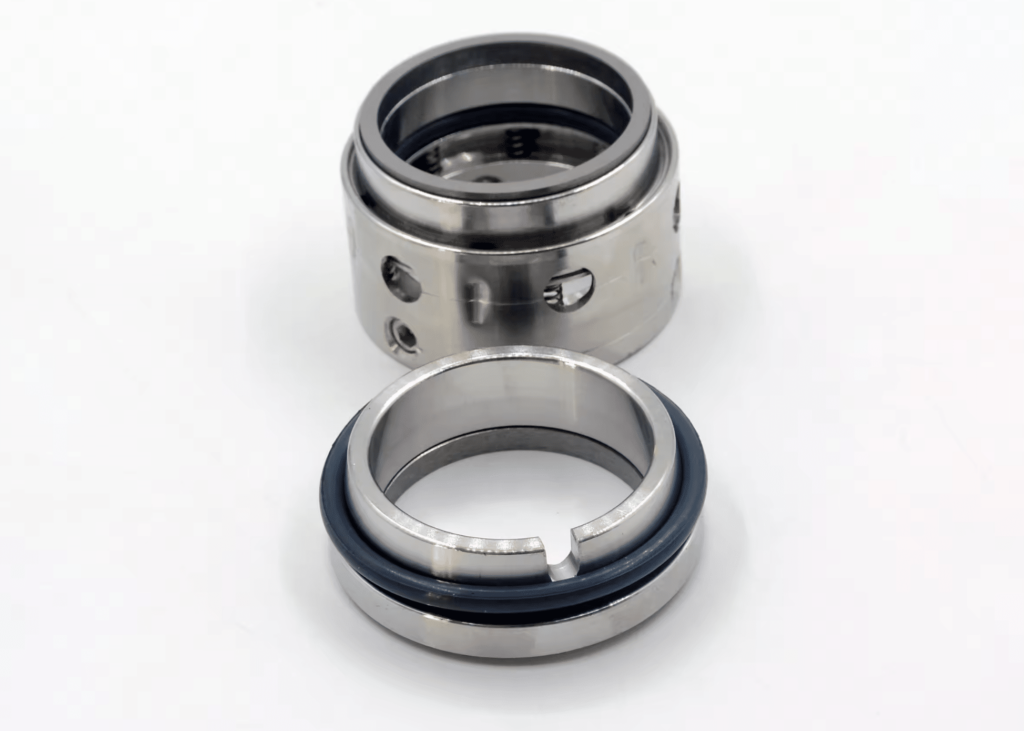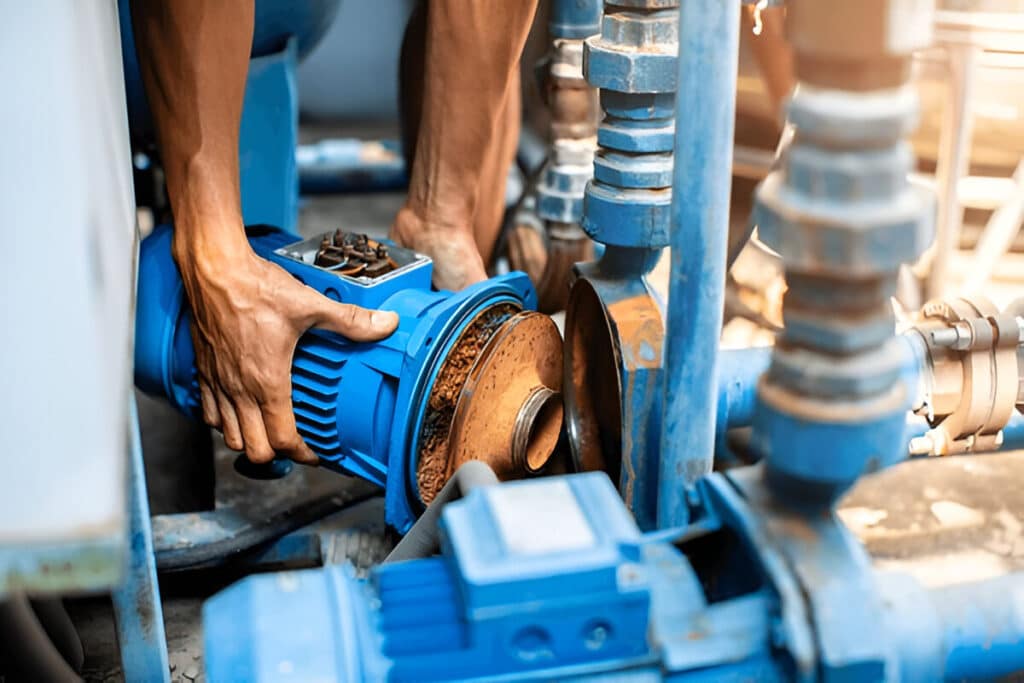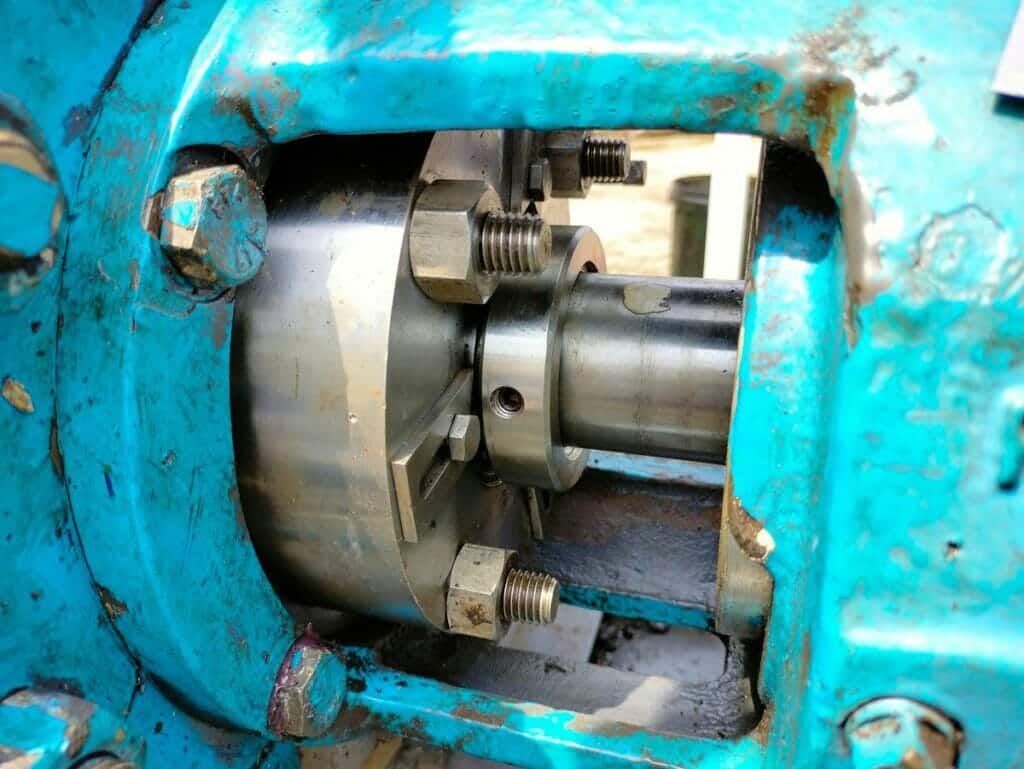
Types of Corrosive Environments
Chemical Processing
Daily exposure to aggressive chemicals degrades standard seals, leading to leaks and downtimes. Handling acids, alkalis, solvents, and other reactive substances presents unique challenges for seal integrity.
When selecting mechanical seals, consider the specific chemicals in use. Fluorocarbon elastomers suit aggressive acids, while perfluoroelastomers resist high temperatures. Seal face materials like silicon carbide or carbon graphite withstand abrasive and corrosive chemicals.
Oil and Gas
Harsh conditions such as high temperatures, aggressive chemicals, and abrasive particles lead to rapid wear and tear, causing seal failures that disrupt operations and increase maintenance costs.
Hydrogen sulfide (H₂S) is a prevalent corrosive agent. It causes sulfide stress cracking, especially in sour gas fields. Seals made from materials resistant to H₂S, like high-grade stainless steel or advanced composites, ensure long-term reliability. Offshore drilling operations face additional challenges with saltwater exposure, which accelerates corrosion.
Crude oil often contains sand and particulate matter that erode seal surfaces. Mechanical seals with hard faces, such as silicon carbide, withstand this abrasion. High-pressure environments require seals that endure substantial pressure without compromising integrity.
Pharmaceutical Manufacturing
Exposure to aggressive chemicals, solvents, and cleaning agents causes rapid degradation of seal materials, leading to leaks and potential contamination.
Acids and bases used in drug production are highly reactive and can wear down standard seal materials. Solvents may swell or dissolve certain elastomers, complicating seal integrity. Frequent cleaning with agents like sodium hypochlorite or hydrogen peroxide adds chemical stress.
PTFE (Polytetrafluoroethylene) and FFKM (Perfluoroelastomer) offer superior chemical resistance. These materials withstand harsh conditions without degrading, ensuring longer seal lifespans.
Double seals or gas barrier seals provide additional protection by isolating the process fluid from the seal faces, reducing corrosion risks.
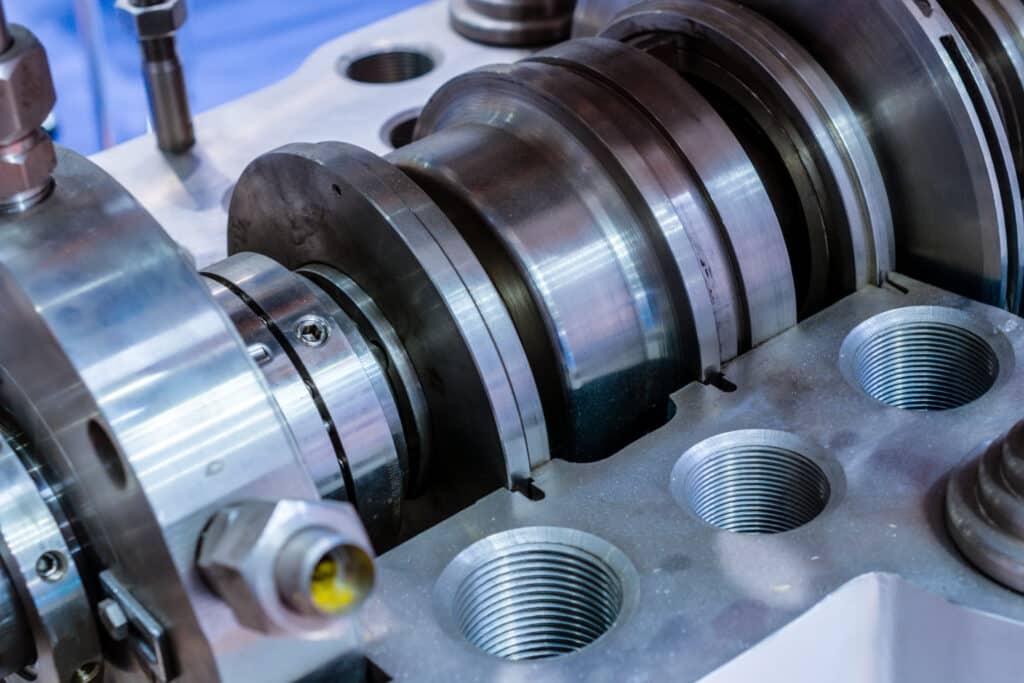
Mechanical Seal Types for Corrosive Environments
Bellow Seals
When you’re dealing with corrosive environments, bellow seals can offer reliable protection. Teflon bellow seals are great for handling aggressive chemicals, while rubber bellow seals excel in more abrasive conditions.
Teflon Bellow Seals
Mechanical seals in harsh chemical environments benefit from Teflon bellow seals. Utilizing Teflon, known for its exceptional chemical resistance, these seals excel in applications involving aggressive substances. They ensure longevity and reliability in corrosive settings. Teflon bellow seals offer flexibility, accommodating misalignments and thermal expansion. They provide robust protection, making them ideal for demanding industrial conditions.
Rubber Bellow Seals
Rubber bellow seals, known for their flexibility and durability, offer reliable performance in corrosive environments. They effectively handle chemical exposure while maintaining robust sealing capabilities. Their unique design absorbs misalignment and shaft deflection, minimizing wear and extending service life. Installation is straightforward, making them an efficient solution for applications requiring strong corrosion resistance.
Pusher Seals
Pusher seals provide durability and reliability through a spring mechanism that maintains optimal contact between the primary sealing element and the rotating surface, even as wear occurs.
Their capability to handle high temperatures and pressures makes them suitable for various industrial applications. Industries such as chemical processing, petrochemical, and pharmaceutical benefit from these seals to prevent leaks and contamination.
Cartridge Seals
Cartridge seals provide a robust and user-friendly solution for handling corrosive environments. Pre-assembled, these seals eliminate the intricate installation process typical of traditional seals, minimizing the risk of installation errors. This design feature leads to better performance and longer service life.
Cartridge seals excel in corrosive settings due to their construction from high-grade, corrosion-resistant materials such as Hastelloy, Inconel, and various ceramic composites. These materials enable the seal components to withstand harsh chemicals and extreme temperatures without degrading.
Maintenance becomes straightforward with cartridge seals. Encapsulated within a single cartridge, replacing or servicing components is less time-consuming, reducing downtime and maintenance costs. Built-in flushing ports facilitate easy cleaning, further extending the seal’s lifespan.
PTFE Wedge Seals
PTFE wedge seals exhibit exceptional resistance to a broad spectrum of chemicals. PTFE, or polytetrafluoroethylene, remains non-reactive, preventing rapid degradation when exposed to harsh substances.
PTFE wedge seals offer versatility by handling both high and low temperatures, making them suitable for diverse applications. These seals maintain their integrity and performance in extremely cold or hot conditions. Their low friction coefficient reduces wear and tear on moving parts, enhancing machinery longevity.
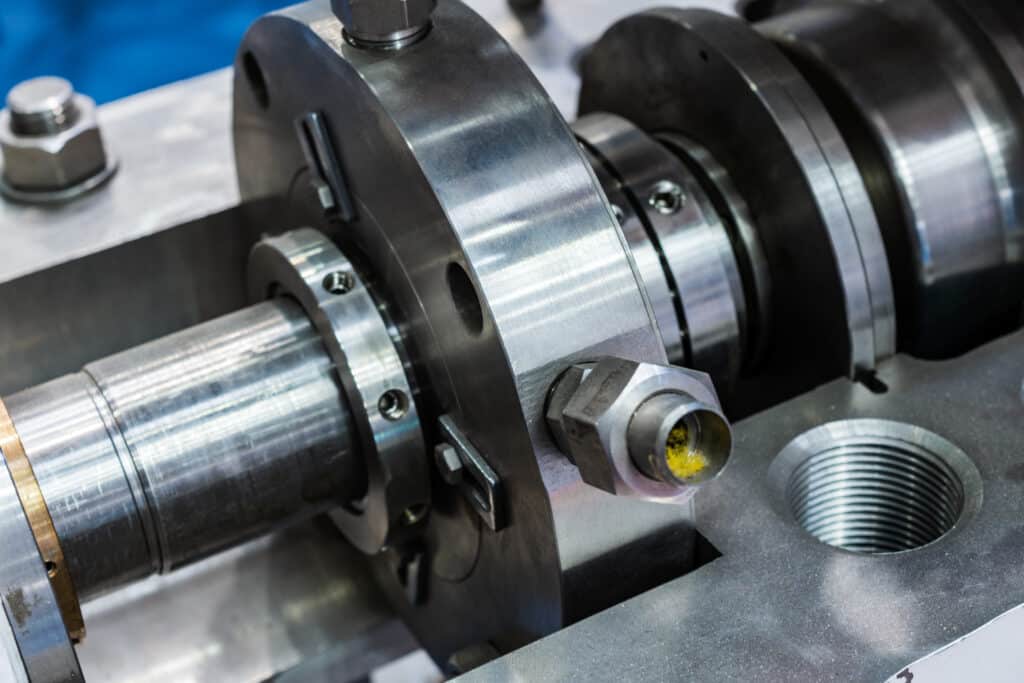
Common Materials Used for Corrosive Environments
Metals
Stainless steel, particularly grades 316 and 304, is a common choice due to its affordability and resistance to various corrosive agents. Its versatility and availability make it a preferred material in numerous applications.
For harsher conditions, Hastelloy, a nickel-molybdenum alloy, excels in resisting both oxidizing and reducing environments. It is effective against pitting and stress corrosion cracking, making it ideal for aggressive chemical settings. Industries such as chemical processing and wastewater treatment frequently use Hastelloy.
In extreme temperatures and high corrosion scenarios, Inconel is the optimal choice. This nickel-chromium alloy offers exceptional strength and corrosion resistance in both acidic and alkaline environments. Inconel maintains its integrity under extreme thermal stress, making it suitable for demanding applications like aerospace and marine engineering.
Ceramics
Ceramics, particularly silicon carbide and tungsten carbide, excel in mechanical seals for corrosive environments. Silicon carbide offers outstanding wear and corrosion resistance, making it ideal for applications requiring longevity and reliability. Its hardness and high thermal conductivity enable it to handle high temperatures and aggressive chemicals effectively.
Tungsten carbide also stands out for its durability and wear resistance. It maintains integrity under high pressure and in the presence of corrosive agents.
Polymers
PTFE, known as Teflon, offers unparalleled chemical resistance, low friction, and high-temperature tolerance. It is ideal for sealing applications where aggressive chemicals could degrade other materials. Its non-reactive nature makes it suitable for use with acids, bases, and solvents, ensuring long-term durability in demanding conditions.
FFKM, or perfluoroelastomer, combines PTFE’s chemical resistance with the flexibility and resilience of elastomers. FFKM seals are used in applications requiring robust chemical resistance and the ability to endure extreme temperatures and pressures. It performs reliably in processes involving concentrated acids, solvents, and hydrocarbons, maintaining integrity without deterioration.
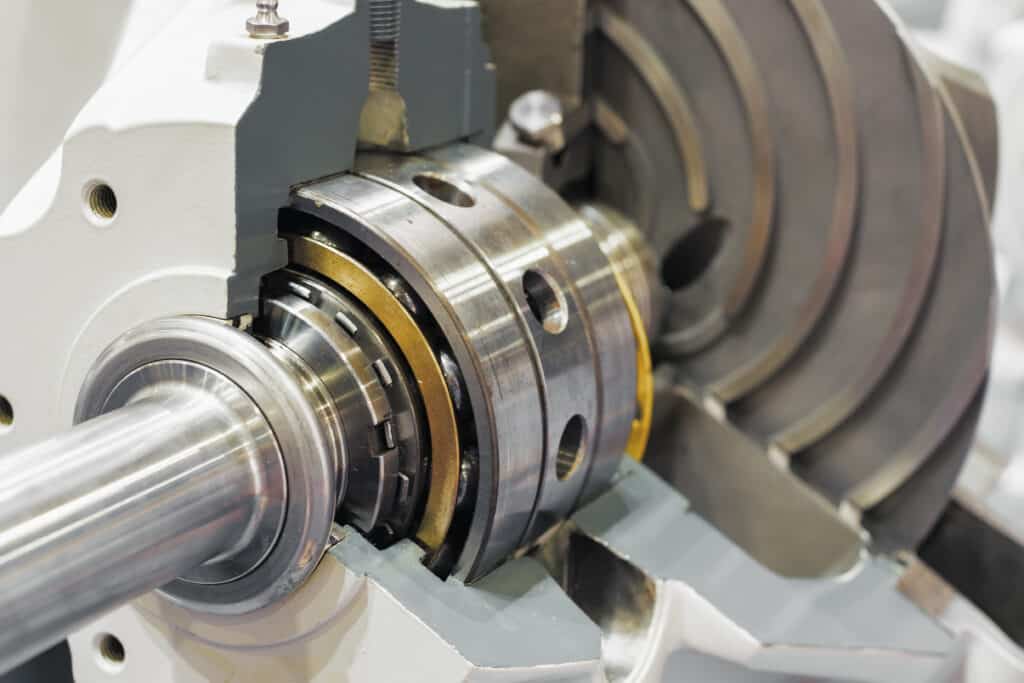
Factors to Consider When Selecting Materials
Chemical Compatibility
Identify the specific chemicals your seal will encounter, whether acids, alkalis, solvents, or combinations thereof. Each chemical interacts uniquely with different materials, necessitating customized solutions rather than a universal approach.
Consider the concentration levels of the chemicals, as higher concentrations can hasten corrosion and degradation. Evaluate the presence of impurities, which may cause unpredictable interactions with seal materials. For instance, certain elastomers may perform adequately with pure substances but fail in contaminated conditions.
Temperature
Consider both operating temperatures and potential variations. High temperatures accelerate chemical reactions, increasing corrosion rates. Low temperatures can make materials brittle and prone to failure.
Evaluate the temperature stability of potential seal materials. Elastomers like Viton and EPDM have different thresholds. Viton handles higher temperatures, whereas EPDM performs better in cooler settings. Ensure the material maintains its mechanical properties under expected conditions.
Consider the thermal expansion properties of the materials. Metals and polymers expand and contract at different rates. Incompatible thermal expansion coefficients can cause seal failure due to gaps forming or excessive stress during temperature fluctuations.
Thermal conductivity is also important for maintaining seal integrity. Materials with poor thermal conductivity may trap heat, causing localized hot spots and premature degradation.
Pressure
High-pressure conditions demand materials that maintain integrity under both corrosive and physical stress. Failure to meet these criteria leads to seal failure, costly downtime, and safety hazards.
Materials must exhibit high tensile strength and resistance to deformation under pressure. Stainless steel and high-performance alloys are often suitable due to their durability and resistance to industrial fluids’ corrosive nature. Non-metallic options, such as advanced ceramics and specialized polymers, also offer exceptional resistance to pressure and corrosion, making them ideal for specific applications.
Abrasiveness of the Fluid
Abrasive fluids accelerate wear on seals, leading to premature failure and costly downtime. Assess the fluid’s particulate content, size, and hardness. The more abrasive the fluid, the more robust the seal material needs to be.
Materials like silicon carbide and tungsten carbide offer exceptional wear resistance. These materials endure harsh interactions with abrasive particles, extending seal lifespan. Consider the seal’s surface finish; a smoother finish reduces friction and wear, enhancing durability.
For highly abrasive fluids, opt for seals with hard face materials and advanced lubrication options to minimize direct contact with abrasive particles.
Hygienic Requirements
The chosen material must be non-reactive to both the fluid being sealed and the cleaning agents used. This prevents harmful reactions that could compromise the seal or contaminate the product.
Surface finish is equally important. A smooth surface minimizes crevices where bacteria and contaminants could accumulate, facilitating easier and more effective cleaning. Stainless steel is often preferred due to its corrosion resistance and ease of cleaning.
Compliance with industry-specific regulations, such as FDA or EU guidelines for food and pharmaceutical applications. These regulations dictate acceptable materials and their required properties, ensuring that seals do not introduce contaminants into the system.
Thermal properties of the material must also be considered. The material should withstand the temperatures of both the process and cleaning cycles without degrading.
FAQs
What Maintenance Practices Extend the Lifespan of Mechanical Seals in Corrosive Settings?
Regularly inspect seals for wear, clean them to remove corrosive buildup, and ensure proper lubrication. Promptly replace damaged parts and use compatible materials to extend the lifespan of mechanical seals in harsh environments.
Are There Industry Standards for Mechanical Seals in Corrosive Applications?
Yes, industry standards like API 682 and ISO 21049 ensure reliability and safety for mechanical seals in corrosive applications. Compliance extends seal life and maintains performance.
How Can I Identify Early Signs of Seal Failure in Corrosive Environments?
Identify early signs of seal failure by checking for leaks, unusual noises, vibrations, or changes in pressure and temperature. Regularly inspect the seal for wear, cracks, or chemical degradation.

